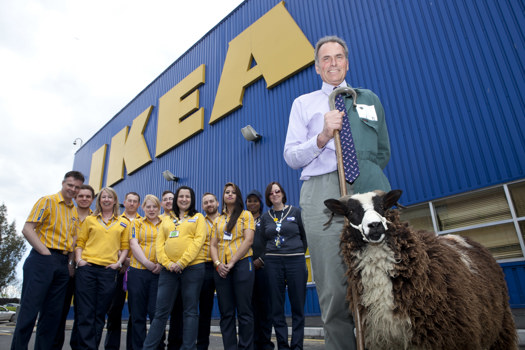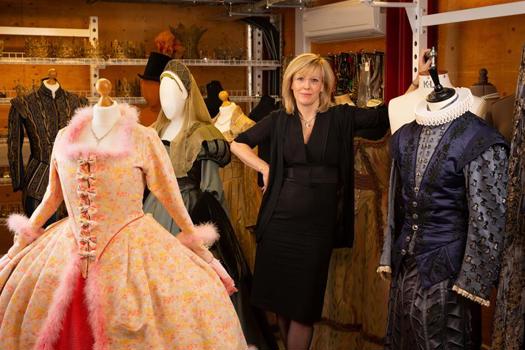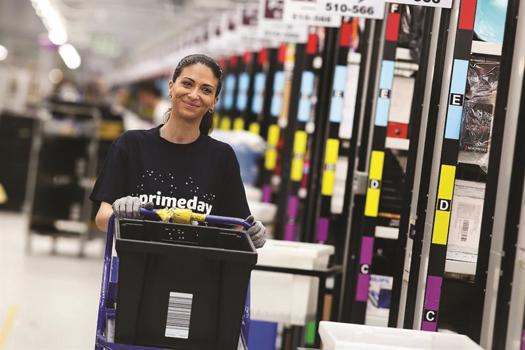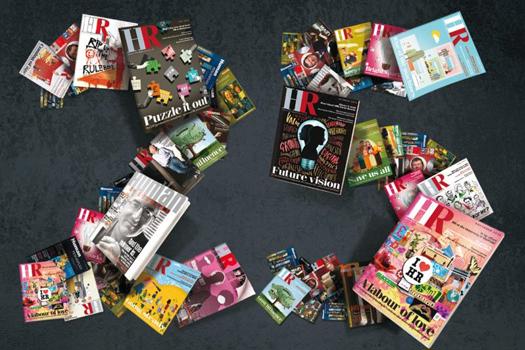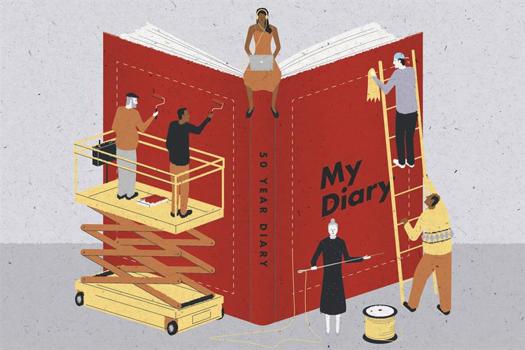Anyone Christmas shopping last year couldn’t have failed to become acquainted with ‘hygge’– if not the word, then at least its trappings. Woollen socks, heart-shaped straw trinkets and jars of cinnamon treats seemed suddenly incredibly abundant, even for the festive time of year.
The nation’s obsession with this Scandinavian concept of cosiness shows little sign of abating; go to Amazon UK and search ‘books about hygge’ and you’ll get more than 500 titles, with doubtless many more in the pipeline.
What's in store for HR?
Work reinvented: take the future of work in your own hands
The future of the organisation and implications for OD
The future of work is freelance - here's what HR needs to know
And now another Scandinavian word has made it big. While hygge (pronounced hue-guh) describes a ‘quality of cosiness and comfortable conviviality that engenders a feeling of contentment or wellbeing’, the Swedish word ‘lagom’ (pronounced ‘la’ like ‘bar’, ‘gom’ like ‘prom’) is defined as not too much, not too little – just right.
So it seems our obsession with a culture famed for balanced, contented living is still growing. There’s much to be learned, the received wisdom goes, from a region whose countries rank highest on GDP per capita, healthy life expectancy and happiness, and famed for progressive social policy around welfare and parental leave.
Which brings us to Swedish brand Ikea. Its stores were certainly among those festooned with gingerbread hearts, woven throws and rustic-looking decorations last winter. But a Scandinavian ethos geared around balance and living well runs a lot deeper than this, explains Pernille Hagild, country HR manager for Ikea UK/IE.
Swedish approach
Hagild explains that it’s an ethos found in all 340 Ikea stores around the world, not just in Sweden. And an approach that is behind its success and growth in recent years, with three more large stores scheduled to open before the end of 2018 in the UK alone.
“All our values come from the Swedish approach,” she explains. “Our founder was born and grew up in a very small village in Sweden in tough conditions where everyone had to work together. The concept of togetherness is about uniting forces to make things happen and respecting that we bring different things.”
The Ikea value Hagild refers to here is ‘togetherness and enthusiasm’, the idea that ‘together we have the power to solve seemingly unsolvable problems’.
It extends right through to the language used to describe employees. “I’m Danish so I come from a culture where we don’t talk about people as staff, we talk about co-workers as a natural terminology,” she says, explaining that Sweden and Ikea are no different.
“I react to the word ‘staff’ when other companies are saying it,” she adds. “It implies staff are one part doing something over here, then you have the managers over here; it’s very ‘us and them’. At Ikea we consider we’re equal. Of course we have different roles and responsibilities, but I would say co-workers on the shop floor are more important to drive the business than I am because we can’t open the store without them.”
Lagom
Another of Ikea’s 10 values is ‘cost-consciousness’. ‘Simplicity’ is a third. Which brings us back to lagom. Ikea’s founding father Ingvar Kamprad – who started the brand selling matches, fish, Christmas tree decorations, seeds, and later pens and pencils – also set a precedent of “working with few resources to make big things happen,” says Hagild.
“Lagom is about not wasting and creating a balance in that you don’t need to produce waste. It’s about having resources to invest by being conscious of what you use,” she explains.
For Hagild this principle is the key to why Ikea UK is able to invest more in its colleagues than many of its competitors, through paying the Living Wage Foundation’s living wage for example.
“That’s £11 million of investment, it’s not insignificant,” she points out. “But we’re able to do that because we’re looking at our costs all the time. So that creates resources that enable us to live our values and make great things happen.”
Another prime example of intelligent, carefully considered resourcing to enable investment in workers is shift allocation, says Hagild. Work/life balance is a central Swedish philosophy and Ikea UK is determined this should apply to shift workers as well as nine-to-five employees.
The result has been a system where no store colleague ever works more than three out of four weekends. This might sound fairly unremarkable, but it sets the retailer apart from many.
“It’s challenging – we’re open 24/7 – but sometimes you need to take a decision. The decision is we cannot accept co-workers working every weekend,” says Hagild. “So now every co-worker has at least one weekend off in four. Everyone. That’s a decision we take. It’s very unusual for a British retailer; co-workers tell us it’s very unusual.”
And it’s only made possible by that guiding philosophy of lagom, says Hagild. “We measure the customer flow, then the hours invested into every week and how to get a balance.
“If that doesn’t add up we need to invest. Or we need to have a dialogue with some of the co-workers to say: ‘would you want longer hours on Saturdays with all the breaks and then you travel less so you save travel costs?’ You need a bit of creativity… We combine positions, so maybe instead of someone only working in logistics, they do some hours on the shop floor at weekends.”
Ikea is on a mission to revamp how shift work is approached, to give colleagues much more certainty about the hours they’re likely to be working in any given period.
“We’ve stepped away from full-time and part-time contracts and instead work with low, medium and high contracts now,” says Hagild. “That’s to try and give people the contract they need to have balance in their life. Because what often happens in retail is you give people a certain contract because you think that’s what you need from a maths point of view, then the reality hits and you need a lot of overtime.”
Next on Hagild’s to-do list is moving the UK company from four- to 12-week rota periods: “When you have 12-week rotas and you have them four or maybe even eight weeks in advance you can plan your life, you can plan whether you’ll be able to go to a wedding and swap shifts if you need to. Office workers take it for granted that they know when they’ll be working over the coming months.”
Long-term health
Of course, none of this comes from a purely altruistic sentiment. Ikea is under no illusions that treating people well is about not just doing the right thing, but ensuring commercial success. A rapidly evolving, increasingly online retail world puts the emphasis squarely on a great store experience delivered by happy, motivated staff.
“The way that customers shop, and their expectations, are changing, and we need to adapt to that,” says Hagild. “So the co-workers on the shop floor need to be more personal than they did maybe six or seven years ago where it was a bit more mechanical – that doesn’t work anymore.”
Having strong values that are constantly used to test any business decision is about taking a long-term focus on doing the right thing, but also the long-term health of the business, says Hagild.
“When I look at what is and is not working at Ikea, when it’s not working it’s because we haven’t taken a decision and said: ‘this is what we stand for and we will not negotiate on that one, because it’s in our values and this is how it is’.
“In retail it’s very here and now. The customers are here and now, the weather is good or bad, there are so many spontaneous things going on operationally. And if you don’t have a long-term approach you will be very reactive and compromise your values.”
One example is gender diversity. Ikea UK, and the wider group, has a fairly strict target of 50/50 men and women on its management team (the split is currently 49.5% women to 50.5% men in Ikea UK). “I don’t necessarily believe in quotas but I do believe you need a non-negotiable goal and strategy around that,” says Hagild. “Because we know we recruit people like us, it’s the unconscious biases.
“So I think quotas can help short term because the more female leaders you get into a role the more role models you have. We know women tend to be a bit more like: ‘if I’m not 150% ready for the role I’m not applying…’ So you have to have those dialogues with women to ask ‘have you thought about applying?’”
Another important value that supports women’s progression at Ikea is, unsurprisingly, around parental leave. “Our strategy is offering as much parental leave as we’re able to in each specific environment where we operate,” reports Hagild. “Our aim is always to be better; we want to inspire other companies to improve. In the US we’ve just approved maternity leave for four months for example. Because if [generous parental leave for both men and women] works in Denmark and Sweden of course it would work elsewhere.”
Values-based leadership
For such values around diversity, togetherness and simplicity to thrive and apply to all business decisions, it’s vital every leader lives and breathes all 10 values all the time, says Hagild. “When we recruit leaders we choose people who have inclusivity and emotional connection to our values,” she says. “Our recruitment is values-based.”
Then it’s about regular training to refresh leaders’ understanding of these values. “Values don’t just come through leaders; you have to train them,” says Hagild. “What we’re doing that’s really different is we create space where we talk about values. We have two-day events where it’s all about values. We pair people off and one part of the couple will talk about the value of simplicity, for example, while the other is listening and coaching. By doing that we say ‘we permit you to do that in your business’.
“The co-workers are saying ‘my leader is very different now’,” she adds. “Instead of saying ‘this is what we would like and how, he is saying this is what we’d like and you do it your way.’”
This training is centred around the very Scandi-sounding concept of walking coaching, something filtering into all events and more informal catch-ups at Ikea: “A lot of the units have started to do development talks where they walk together with co-workers rather than sitting in an intimidating room with white walls,” reports Hagild. “It’s really relaxed so your personality comes through and you talk and think more naturally.”
Which leads to the health and wellbeing element central to the Ikea ethos and the Nordic region generally. And to another Scandi-concept: fika.
“Fika is where you take a coffee break and instead of working while you have your coffee – which you would often do in Denmark by the way – you go to the fika area and have a break and just talk to each other,” reports Hagild, adding that all colleagues (store and back office) can eat for free or as little as a couple of pounds a day if choosing from the healthy food selections Ikea serves in its employee areas.
“When we meet in the fika area we don’t meet around business as such. We have a rule that from 12 to two we don’t have business in that area because otherwise everything becomes about working.”
This culture then filters into all interactions, reports Hagild. “I’ve met quite a few people who say ‘it’s amazing people say good morning to me’. I say: ‘I beg your pardon?! Why wouldn’t you, it’s your colleagues.’ That’s about the health and wellbeing.”
Comfort and trust
So it would seem there’s much more to a distinctively Swedish, or rather Nordic, approach than just cashmere socks and cosy blankets. Especially as workplace wellbeing, and in particular the link between mental wellbeing and productivity, continues to climb the UK business agenda.
A strong approach to embedding values and to diversity and inclusivity will put organisations –Swedish in origin or not – in excellent stead here, says Hagild.
“I had a colleague say ‘During the last year I’ve had some mental health issues and I’d really like to share my story with the organisation’,” she reports. “So we have this environment that creates comfort and trust. That’s one of those moments where I know we are doing something valuable.”


